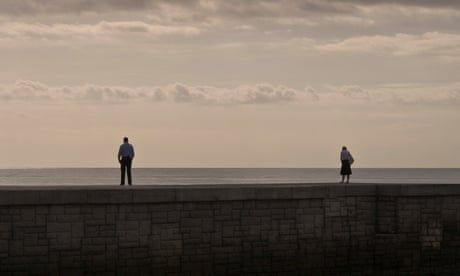
The third book from the twice Pulitzer prize-nominated American author is a complex portrait of parallel lives on a par with the great Russian novels
Adam Haslett is one of those incandescently smart and elegant authors that the US seems to produce almost accidentally and to excess, names who haven’t quite risen to international literary stardom, but perhaps deserve to: think Jonathan Dee, Garth Risk Hallberg, Lauren Groff or Claire Messud. Haslett’s brilliant debut novel, Union Atlantic, looked into the bleak moral heart of the 2007-8 financial crisis. His second, Imagine Me Gone, was a meditation on fatherhood and depression. Now, with Mothers and Sons, he has written a book that circles around an absence: the alienation of a son – Peter, a lawyer in his 40s – from his mother, Ann, who runs an “intentional community”, a women’s retreat in the hills of Vermont.
This is a novel about practice. Chapter by chapter, we move from Peter’s world in the first person to Ann’s in the third, building up a picture of their lives, the rhythms of their days. Peter is an asylum lawyer in New York, his time spent with the desperate and destitute. His personal life is almost nonexistent – he is lonely, hopeless, trapped by his own past. After a brief and hesitant affair with a schoolfriend, tragedy strikes. He blames his mother for the guilt that has haunted him ever since. Now he buries himself in his cases. “I work – that’s all I do. I get people to tell me their stories, I try to prove what they tell me, then I do it again.” It’s a thankless task, with the state increasingly hostile and his co-workers as harassed and frustrated as he is. “Travelling into one life after another, intimacy without intimacy.” Then a new client arrives, a gay young man, an Albanian. The shame and horror of his story opens up a window into Peter’s own dark past.
Continue reading...